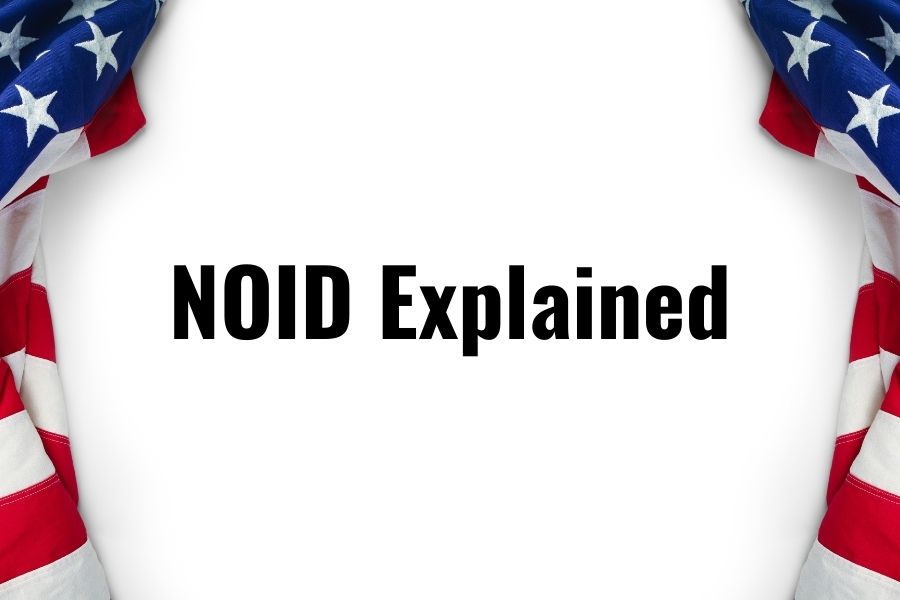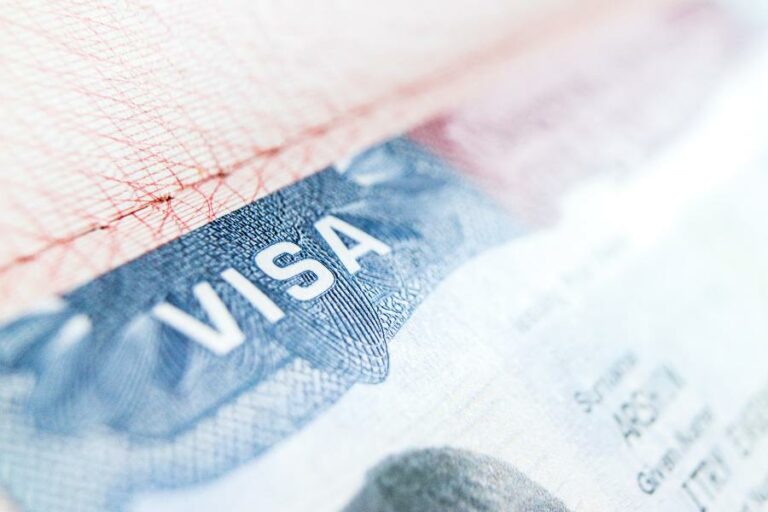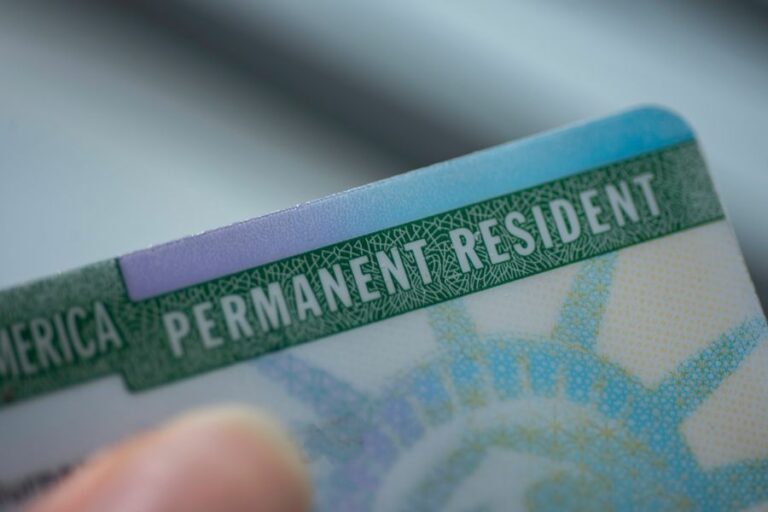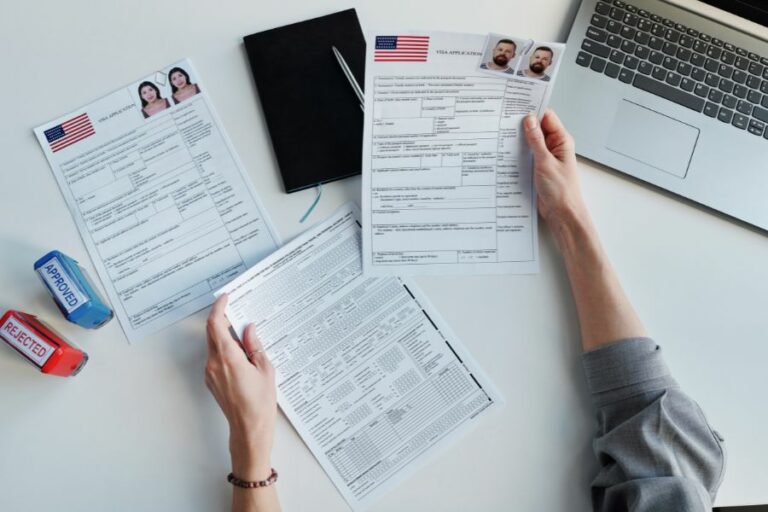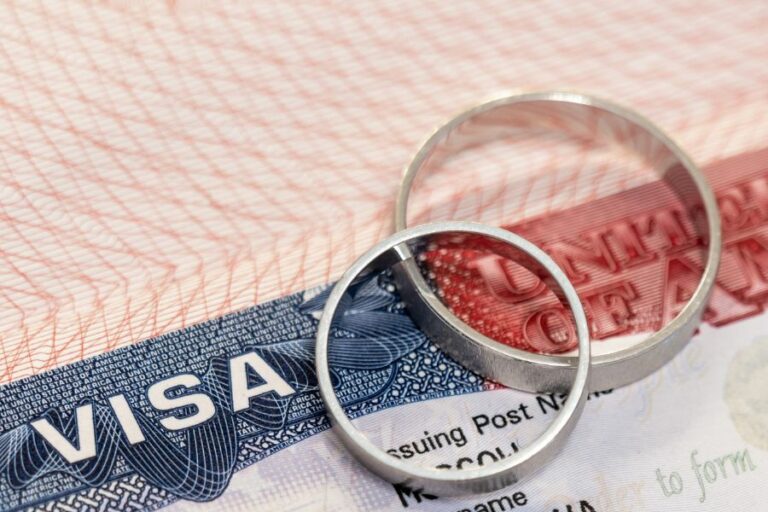Why Did I Get a NOID from USCIS & What to Do?
Submitting an immigration petition to the United States Citizenship and Immigration Services (USCIS) can be a momentous occasion, filled with plans and anticipation.
However, the process is also fraught with uncertainty, and receiving a Notice of Intent to Deny (NOID) from USCIS can be disheartening.
The good news is if you did recently receive a NOID from USCIS during your green card process, there’s still hope.
In this article, we’ll delve into the intricacies of NOIDs, what they mean, how to respond, and whether you need legal assistance.
What Is a Notice of Intent to Deny from USCIS?
A Notice of Intent to Deny (NOID) is what it purports to be. It is a denial letter from USCIS to the applicant advising that the application currently falls short of the required standard for a specific reason. The letter suggests that USCIS intends to deny the application if the issues raised in the letter are not addressed and resolved.
A NOID is NOT an official denial. A NOID occurs when a USCIS officer does not have sufficient evidence to approve an application but also does not have enough evidence to deny it.
In essence, a NOID allows you to address specific defects in a given timeframe.
NOID vs. RFE: What Is the Difference?
Understanding the difference between a Notice of Intent to Deny (NOID) and a Request For Evidence (RFE) is essential.
Typically, an RFE is less ominous than a NOID. When the RFE is issued, the USCIS officer is more likely to approve the application pending the submission of the additional evidence requested in the RFE.
An NOID, on the other hand, warns applicants that certain defects will lead to denial of the application unless they are addressed.
The time frames are also different. Applicants are given ninety days to provide evidence for an RFE, but only thirty days to respond to the NOID.
Reasons you may have received a NOID from USCIS
You may receive a NOID for various reasons. Some of the more common ones are listed below:
- USCIS immigration officer finds your submission to be insufficiently substantiated.
- The interviewer believes they have picked up inaccuracies or inconsistencies in your interview.
- USCIS believes you have submitted a suspicious document, such as a fake birth certificate.
- USCIS has determined that a prior marriage was not lawfully ended, rendering the later marriage void.
- You are not eligible for the visa you applied for.
- An evaluation officer has concerns regarding the legal status of your marriage. It happens when you fail to answer questions about your marital status persuasively and accurately. You may receive a NOID if the officer believes that your relationship may be an attempt to circumvent immigration rules by being a marriage of convenience.
If you have received a NOID and need help to closely review documents, it is advised to consult with an attorney.
Can you overturn a NOID?
Yes, you can overturn a Notice of Intent to Deny (NOID) from USCIS. While receiving a NOID can be disheartening, it does not represent the final decision on your application. It serves as an opportunity for you to address the concerns raised by USCIS and provide additional evidence to support your case.

How to respond to a Notice of Intent to Deny
Within 30 days of receiving the NOID, you must submit extensive evidence to overcome the shortfall in your application. A NOID will clearly outline all the issues you need to address effectively to increase your chances of a positive outcome. It is important to note that a NOID is not the same as an official denial notice. It’s a good opportunity to clarify any concerns raised.
You may benefit significantly from the assistance of an experienced immigration attorney in determining the evidence to include, as well as suggesting documents that are not immediately apparent. A skilled immigration lawyer will also thoroughly review all your paperwork before submitting it.
1. Updating Relevant Documents:
When considering your response, it is a good idea to simultaneously update documents you have already provided if circumstances have changed since your initial submission. For example, you have applied for an E2 investor visa, and your business plans need a few revisions to the budgeting and forecasting.
2. Providing Evidence:
You need to address every single item raised in full detail, whether you believe you have done so before or not. Partial responses are not accepted. Providing too much information is better than not providing enough, so give as much as possible. Take the time to review every item on the list.
3. Adding a Covering Letter:
An extensive cover letter that outlines how you have responded to the issues raised and lists all the evidence you have included always works in your favor. Your attorney can write a compelling response letter that explains the new evidence submitted and outlines revisions made to documents. It is essential to follow this procedure to increase the chances of your case being successful.
Sample NOID Response Letter
[Your Name]
[Your Address]
[City, State, ZIP Code]
[Date]
[USCIS Office Address]
[City, State, ZIP Code]
Re: Response to Notice of Intent to Deny (NOID) for [Your Application Type and Receipt Number]
Dear USCIS Officer,
I am writing in response to the Notice of Intent to Deny (NOID) dated [Date of NOID] that I received regarding my application for [Your Application Type] with the receipt number [Your Receipt Number]. I appreciate the opportunity to address the concerns raised by USCIS, and I would like to provide additional evidence and information to support my case.
I have carefully reviewed the NOID, and I understand the reasons for the potential denial of my application. I want to assure USCIS that my intention is to comply with all applicable immigration laws and regulations, and I believe that my case deserves a favorable outcome. In response to the issues raised in the NOID, I am submitting the following evidence and explanations:
[List the issues raised in the NOID and provide detailed responses and evidence for each issue.]
I have attached the necessary supporting documents and affidavits to address each of the concerns raised by USCIS. Additionally, I have made revisions to certain documents that may not have adequately communicated the required information.
I am fully committed to providing any additional information or evidence that USCIS may require to make an informed decision regarding my application. If there are any further questions or concerns, please do not hesitate to contact me at [Your Phone Number] or [Your Email Address].
I kindly request that USCIS reconsider my application in light of the new evidence and explanations provided in this response. I believe that my case merits approval, and I am eager to contribute positively to the United States as a [Your Visa or Immigration Status] if given the opportunity.
Thank you for your time and attention to this matter. I look forward to a favorable resolution of my application.
Sincerely,
[Your Full Name]
Please note that this is a sample response letter, and you should customize it to fit your specific situation and address the issues raised in your NOID. It’s highly recommended to consult with an immigration attorney for guidance on responding to a NOID from USCIS.
Disclaimer: Please note that the following sample letter is provided for informational purposes only and should not be considered as legal advice.
FAQs
After receiving a Notice of Intent to Deny (NOID), you should promptly respond with additional evidence and information to address USCIS’s concerns. USCIS will then review your response and make a final decision on your application or petition.
The chances of approval after receiving a NOID depend on various factors, including the strength of your response, the quality of the evidence provided, and the specific reasons for the NOID. While approval is possible, there are no guarantees, so it’s crucial to submit a thorough and convincing response.
If your application is denied after responding to the NOID, you may have options such as filing an appeal, motion to reopen, or reconsideration. Consulting with an immigration attorney can help you explore these options and determine the best course of action.
Yes, USCIS can deny an application or petition without issuing a NOID. In some cases, USCIS may deny an application if it determines that the initial evidence or information provided does not establish eligibility. USCIS has the discretion to issue a denial without first issuing a Request for Evidence (RFE) or NOID, as per a policy memorandum issued in 2018.
While it’s not a strict requirement, it is highly advisable to consult with an experienced immigration attorney when dealing with a NOID. An attorney can provide valuable guidance and expertise in navigating the complex immigration process. They can help you understand the reasons behind the NOID, gather the necessary evidence, and formulate a strong response. Given the importance of timely and thorough responses to NOIDs, having an attorney by your side can significantly increase your chances of a successful outcome.
Final Note
Receiving a Notice of Intent to Deny from USCIS can be a stressful and discouraging experience. However, it’s essential to remember that a NOID is not the final word on your application. You have the opportunity to respond, provide additional evidence, and address the concerns raised by USCIS.
Navigating the immigration process can be complex, and seeking legal assistance from an experienced immigration attorney is highly recommended. An attorney can guide you through the response process, help you gather the necessary evidence, and improve your chances of a successful outcome.
If you’ve received a NOID or are in the process of preparing a response, don’t hesitate to consult with an immigration attorney who can provide the support and expertise you need to navigate this challenging situation.
USCIS Issues Updated Policy Guidance on RFEs and NOIDs
Check out some threads on Reddit regarding NOIDs:
References:

